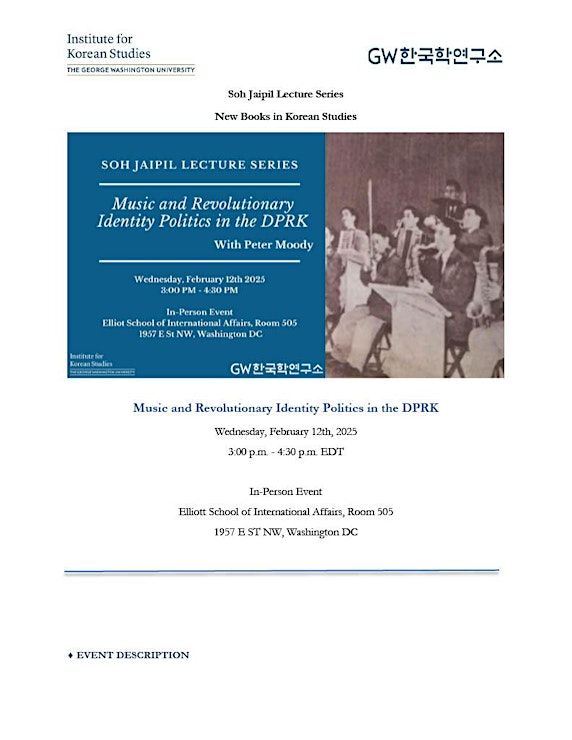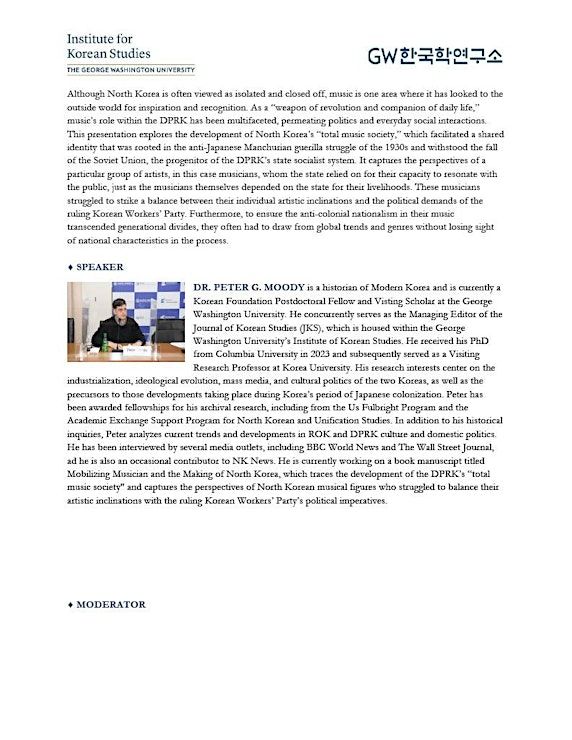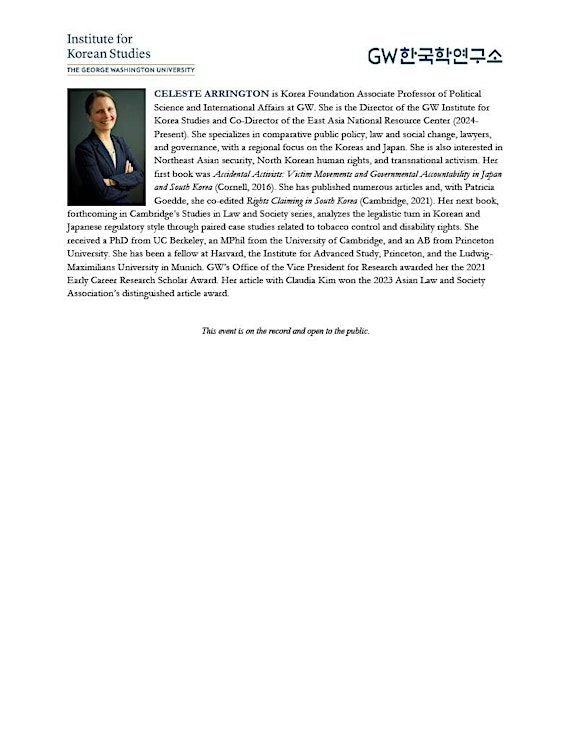
About this Event
Although North Korea is often viewed as isolated and closed off, music is one area where it has looked to the outside world for inspiration and recognition. As a “weapon of revolution and companion of daily life,” music’s role within the DPRK has been multifaceted, permeating politics and everyday social interactions. This presentation explores the development of North Korea’s “total music society,” which facilitated a shared identity that was rooted in the anti-Japanese Manchurian guerilla struggle of the 1930s and withstood the fall of the Soviet Union, the progenitor of the DPRK’s state socialist system. It captures the perspectives of a particular group of artists, in this case musicians, whom the state relied on for their capacity to resonate with the public, just as the musicians themselves depended on the state for their livelihoods. These musicians struggled to strike a balance between their individual artistic inclinations and the political demands of the ruling Korean Workers’ Party. Furthermore, to ensure the anti-colonial nationalism in their music transcended generational divides, they often had to draw from global trends and genres without losing sight of national characteristics in the process.



Event Venue & Nearby Stays
Elliott School of International Affairs, Room 505, 1957 E Street Northwest, Washington, United States
USD 0.00












